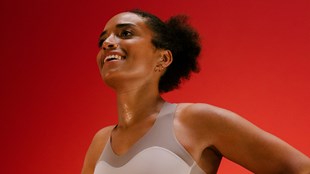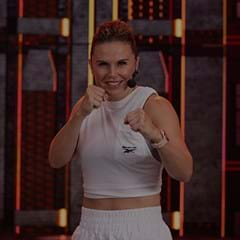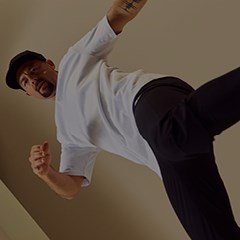Let's face it, having to take time off from classes sucks. Especially when it’s because of Covid.
Aside from the financial implications, there’s the fun we’ll miss out on as well. For many of us, classes are the highlight of our week, as we get to experience the joy of leading others in a workout and forging special connections with our members.
However, once you're clear of your Covid isolation period, you may find you need to plan a gradual return to teaching, as well as your own training.
The risk of long Covid
Millions of individuals have had or will have Covid-19, and most of us will recover completely and return to normal health. However, some of us (up to 30% according to some experts) will continue to suffer well after recovering from the initial acute stages of the illness. This is referred to as post-acute sequelae of SARS‐CoV‐2 infection (PASC), or simply ‘long Covid’.
The symptoms of long Covid can include fatigue, shortness of breath, palpitations, cognitive dysfunction, a.k.a brain fog, sleep disorders, fevers, gastrointestinal symptoms, anxiety and depression. These symptoms can last for months – for some they may be life-long – and range from mild to incapacitating.
Getting adequate rest is fundamental to overcoming the virus, but that doesn't necessarily mean avoiding physical activity.
This illness may seem relatively new on the scene, however, post-viral illnesses are not new, and long Covid shares many similarities to Myalgic Encephalomyelitis/chronic fatigue syndrome (ME/CFS). One of the shared features of long Covid is the misconception that this illness is psychological, or a result of deconditioning.
There is still a lot to learn about the mechanisms of all post-infection illnesses – including long Covid – and research into how to treat or reverse these illnesses is pretty thin on the ground.
Dr. Anna Brooks, a cellular immunologist who is leading a major research project on long Covid in New Zealand, says long Covid is likely a result of damage from a direct viral infection of cells and persistent inflammation associated with widespread blood vessel damage. She explains that ongoing inflammation may be caused by incomplete clearance of the virus (viral persistence or debris) or the onset of a misfiring immune attack on the body (autoimmunity).
DES HELU REDUCED HIS WEIGHTS IN BODYPUMP
Les Mills Presenter and Personal Trainer Des Helu took a week and a half off from teaching after completing his isolation period for Covid.
"I'd read about the risks of getting Covid and that doing excessive training wasn't a good idea, but being someone who needs to move a lot, I went straight into cardio on my first session back. It was a mistake, because even though I had been feeling better, I quickly got out of breath and felt really congested.
The reality check came when I got a message from one of my clients. She'd gone straight back into doing lots of HIIT and training hard after recovering, and suddenly over the weekend she texted to say: "Bad news – I have long Covid." That's when it hit me that I needed to pull back because if I got sick again I wouldn’t be able to do anything.
I completely cut out my cardio conditioning and just focused on strength training, and what really helped me was to double my rest periods between sets. So what was a 45 to 60-second rest became 90 seconds to two minutes.
In terms of teaching, initially I returned to the classes I don’t have to physically do myself: LES MILLS CONQUER™ and LES MILLS CEREMONY™. I did that for a week and then went back to teaching LES MILLS GRIT™, and I deliberately chose tracks that had a really intense Track 2 so I could monitor how I was feeling. If I was struggling in that track, then I knew I should pull back for the rest of the class.
In BODYPUMP™ I also dropped right back on my weights. For example, I normally lift 2x 10kg In the Back Track, but I switched them out for 7.5kg."
Getting adequate rest is fundamental to overcoming the virus, but that doesn't necessarily mean avoiding physical activity. “There’s no “one-size-fits-all” advice about when to return to exercise and when to rest, it may come down to how you feel in yourself, and recognizing signs that you may not have fully recovered,” says Brooks. “If you take a ‘rest only’ approach, it does not mean you will not suffer long Covid, and likewise there is no evidence that exercising straight after infection will trigger long Covid either.” However, exercising too soon, or pushing through the warning signs, has been noted by many of those with long Covid as the key trigger. "We just don’t know who the virus will cause damage to and trigger this illness cascade, so a precautionary approach when returning to exercise is recommended".
Making sure you're listening to your body and not pushing through symptoms is the smartest approach to mitigating the risk of ongoing suffering.
What to tell your members
If they’re experiencing symptoms (even after they’re no longer infectious), avoid all exertion and get as much rest as possible. Brooks says it is “incredibly important” to avoid graded exercise therapy (which is an outdated approach that involves introducing exercise in an effort to help treat fatigue) as this is dangerous and can not only exacerbate symptoms, but trigger a more severe condition.
If, on the other hand, they don't notice any ill effects from the virus, a gradual phased return to exercise is the best bet. Over-exerting themselves with intense exercise is almost certainly a bad idea. Making sure they're listening to their body and not pushing through symptoms is the smartest approach to mitigating the risk of ongoing suffering.
At the same time, they should be mindful of the bigger picture benefits of exercise when it comes to overcoming and preventing illness. Regular exercise as part of a healthy lifestyle is key to immunity and physical activity is widely regarded by many experts as the best medicine. There is even evidence suggesting that higher levels of EcSOD in the body (a potent antioxidant released during exercise) can prevent, or at least reduce, the severity of acute respiratory distress syndrome (ARDS) – one of the worst possible outcomes of Covid.
A team of doctors compiled comprehensive guidance on the treatment of fatigue and long Covid. In particular, it covers four key points to consider when returning to physical activity post-Covid.
How to return to exercise:
- Begin individualized, structured low-dose return to physical activity
- Explore energy conservation strategies, such as selecting activities that match your energy levels, scheduling time for periods of rest, avoiding busyness, rushing and unnecessary stress
- Choose healthy nutrition and stay well hydrated
- Treat underlying medical conditions (in collaboration with appropriate specialists). This means dealing with any pain, insomnia/sleep disorders/poor sleep habits, and mood issues that may be contributing to fatigue.
Keep an eye out for any long Covid warning signs:
- Severe exhaustion after minimal physical or mental exertion
- The sense of being weighed down all day
- After having a ‘good day’ of increased levels of physical activity, you experience the feeling of ‘crashing’ and require several days of recovery
- Persistent tiredness or exhaustion after sleep/upon waking.
LOOK AFTER YOURSELF:
- As group fitness Instructors, we're used to putting everyone else's workout first. We don't want to let our members/ club down and we can feel guilty for asking for covers or not pushing ourselves to the max in our classes. But as Des Helu can attest, it's far better to get covers and pull back in the short term, than run the risk of being out of action for a longer period.
- Plan your return to teaching gradually and choose which programs you want to come to first. Programs that are lighter on cardio (BODYBALANCE™, LES MILLS CORE™, BODYPUMP) might be your best bet to start with, and save HIIT and higher-intensity cardio for later down the track.
- Talk to your Group Fitness Manager and your fellow Instructors about how to manage your return to teaching. Team teaching with another Instructor is a great way to test the water and give yourself permission to pull back without feeling like you're "letting the class down".
- Be honest with the class about how you’re feeling! Chances are there will be members in the room who will relate. See your return as an opportunity to educate your members about how to return to exercise safely by leading from the front.
JESSICA-KATE SODO TOOK A WHOLE MONTH OFF FROM TEACHING TO RECOVER
"From the outset I realized that Covid had hit me hard. I'm not normally one to get sick, and if I do I’m out for a couple of days and I get back into things pretty quick. Not this time. Lying in bed for ten days without any inclination to move is unheard of for me. I run most days and teach RPM™, LES MILLS SPRINT™, BODYPUMP and BODYBALANCE six days a week. I love moving and I love connecting with people.
Before I went back to any intensive exercise, I had an ECG done and was cleared for exercise. I had blood tests which came back elevated in a few areas; they're still something I need to monitor and be mindful of. There was an element of easing in, but also an element of pushing through. I found it was an art of striking a balance between the two. I kept telling myself that the strength was within me, I just had to unlock it! After my first squat track, my right leg wouldn’t stop shaking.
After four weeks off teaching, I came back at a reduced version of my normal timetable. From there I was quickly back to my normal weights. While the workout felt great at the time, the day after I was shattered. My main concern was to manage my recovery and ensure I had enough rest between training. I managed to find the sweet spot over the next few weeks. As of last week (4th April - 2 months later!) I was able to resume all classes normally.
I am normally of a mentality to push through, but then, to what end? At the cost of your performance for the next year? Two years?
The temptation is always there to keep pushing on, be your best self etc. but sometimes that’s not the answer. The best thing in this case was to question why I train and to realize that sometimes the best thing is to accept that you need to rest."







